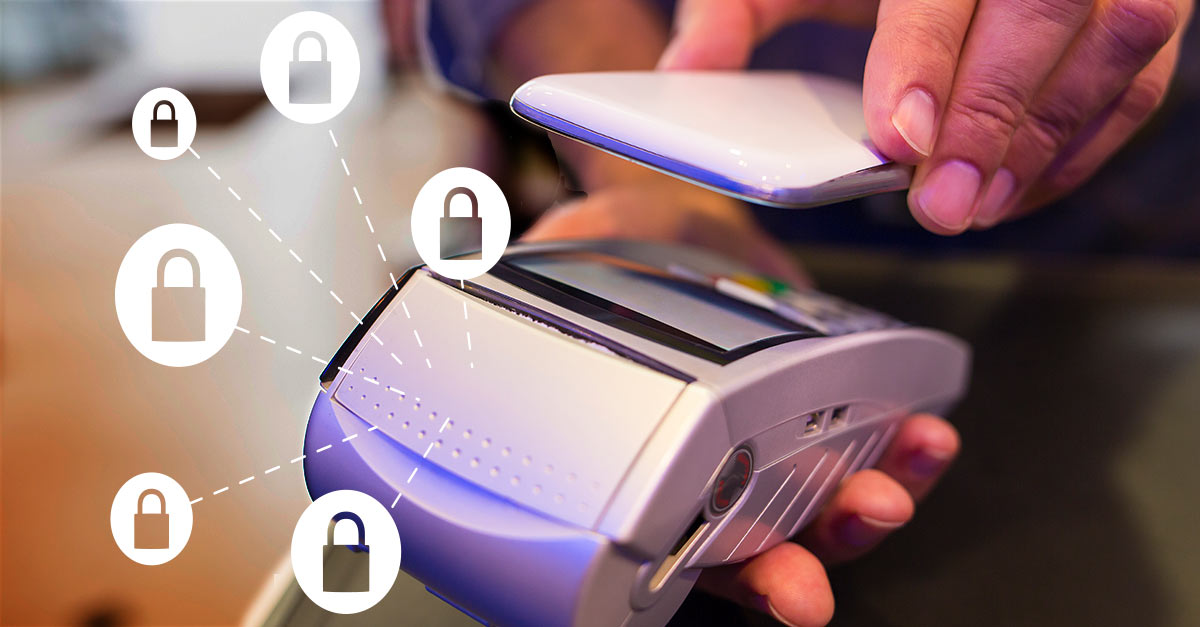A cashless society is essentially an economic state that only accepts the digital transfer of currency without physical bills or coins. The advantages of a cashless society continue to increase with each passing year along with the help of new cashless payment options. Cashless payments deter a wide array of criminal activity, save the government money, better health of the population, and improve life and business efficiency.

Types of Cashless Payments
While the vast majority of cashless payments continue to be credit and debit cards, more and more cashless payment options continue to make an introduction into the financial market each year, including:
- Internet banking
- Mobile banking
- Mobile wallet apps
- Point of sale (POS) devices
It is also possible to use Unstructured Supplementary Service Data (USSD), QR codes, and electronic clearance services to transfer money online. One of the fastest-growing cashless payment types is the use of contactless payments. You can even use vouchers and gift cards in an electronic capacity these days to help minimize the need for printing paper products.
Government Savings
In 2019, the US government spent nearly $675 million on printing new bills, according to the Federal Reserve. This does not include the cost of making new coins, labor, and other expenses directly related to creating new currency. Governments will also spend far less time attempting to verify tax filings and to more easily ensure all income is taxed and accounted for each tax period with cashless payrolls. It also eliminates foreign countries from printing their own US or Canadian currency, which has devastating consequences worldwide. All of these savings could be redirected to more critical areas, such as providing greater cyber security protection to consumers.
The Health Factor
How many times have you handled bills and coins, and then touched your face, eaten or touched a loved one before washing your hands? Paper money and metal coins are truly quite dirty. The microorganisms that grow on money from the endless handling by millions of strangers can contribute to acne and carry viruses, pet DNA, and traces of cocaine, according to a 2017 study in NYC. In fact, during a health pandemic, most businesses will not accept cash payments for the protection of both the consumer and employees as it is considered a potential public health risk.
Reduce Crime
One of the greatest selling points for a cashless society has been how it will disrupt criminal activity. Innocent lives will no longer be at risk from senseless cash grab robberies and street muggings. High-stakes in-person bank robberies will no longer be a threat. Money laundering and tax evasion become significantly more difficult. And it will eliminate certain petty crimes, such as pickpocketing. While a cashless society will never eliminate crime, it will significantly reduce many crimes and save lives.
Improve Life Efficiency
As a society, you like things to be efficient and fast. The elimination of paper bills and coins helps to improve overall life efficiency. You will no longer have to roll your eyes as you stand in line, waiting for someone to count out their coins. Frustrating out-of-the-way ATM trips and waiting for cashback will no longer be necessary. It will be significantly easier to travel from country to country without having to wait in long lines while trying to communicate in a language you do not speak to exchange currency.
Business Benefits
Businesses also benefit greatly from cashless systems. Many businesses will significantly reduce the risk of physical theft by criminals and the theft of in-house cash by employees. Cashfree businesses also help to prevent counterfeit bills from entering the company system, which can result in criminal charges by the federal government. Labor hours spent on cash transactions will be reduced so that individuals can focus on more important tasks. And businesses will see an improvement to the bottom line as the average card transactions (ACT) increase with the use of cards over cash.
The Future of No Cash
Cashless payments will continue to evolve to improve efficiency and minimize risk. Today, biometric technologies are being used to develop payment options by using facial recognition, retinas, and fingerprints. In 2018, many people in Sweden started implanting RFID chips into their bodies to use as contactless credit cards, railcards, and key cards. This type of chip payment option may be used on a much larger scale in the future.
A cashless society is forging ahead toward reality each and every day. The concept will benefit businesses and consumers alike. Between crime reduction, improvements in life efficiency, and the constant expansion of cashless payment options, it seems the traction of a cashless world will only continue to gain momentum.
Leave a Reply